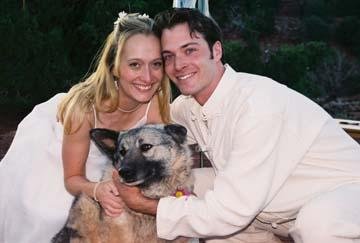It’s a peculiarly modern Catch-22: To Judge or Not to Judge?
Consider the two sides:
Person A: Can you believe what those bullies (and/or racists, bigots, gang members, etc.) did? How awful!
Person B: Hey, man–don’t judge! Who are YOU to say what’s “awful”? Everyone’s on their own path.
What would YOU say?
Would you judge like Person A, or would you agree with Person B that bullying isn’t bad (or good)–it simply is? No judgment, right? After all, judgment is bad!
Oh, wait–that’s a judgment! I shouldn’t judge! Oh, no! That was another judgment! I shouldn’t should. Now I’m doubly bad! Oh, no–there’s another judgment! (…etc.)
Sound familiar?
Have you ever heard or had a conversation like this (even if it was just within your own mind)? If so, you’ve probably realized that you can go round and round in circles–and drive yourself nuts–trying to rid yourself of a very natural and, I believe, oftentimes healthy response: judgment.
After all, what is judgment?
- Judgment = Thought + Opinion
- Judgment = Observation + Discernment
- Judgment = Preference
Judgment is having a sense (emotionally, logically, and/or intuitively) of what is most healthy, beneficial, or positive.
Judgment has many benefits:
- It can steer you toward your dreams. (“This is a better path for me.”)
- It can keep you safe. (“This place looks sketchy–let’s get out of here.”)
- It can help you surround yourself with people who support and nurture you. (“I get a better vibe from the second group of people–let’s hang out with them.”)
On the other hand, a lack of judgment can do just the opposite. Consider people about whom you might say, “He’s a poor judge of character” or “She doesn’t use good judgment”–they’re likely to hang around people who drag them down or even jeopardize their lives.
Yet in the personal-growth world, “judgment” is widely considered a “bad” word (logical inconsistency or not).
To be fair, this is probably a reaction to excessive moral condemnation, closed-mindedness, and a patronizing holier-than-thou attitude. (Remember Dana Carvey as SNL’s “Church Lady” who always deemed herself morally “superior”–and even had a special “Superior Dance” to celebrate it? It’s amusing on TV, but not so much in real life.)
However, the pendulum can swing so far back in the other direction that you beat yourself (and/or others) up just for having an opinion. If you feel yourself being too hard on yourself–judging yourself for judging–remember the upsides of judgment.
Judgment can make the world a better place!
Judgment is a perfectly sane reaction to insanity, and a compassionate reaction to cruelty. In fact, judging things as “bad” has led to some of the world’s most important breakthroughs, such as the abolition of slavery and the introduction of anti-abuse laws.
Judgment provides “clarity through contrast”!
One of my favorite concepts is “clarity through contrast”–which means that seeing (and even judging) things that you don’t like can help you clarify what you do like. (For instance, rude and/or bigoted people can remind you to surround yourself with considerate, tolerant people.)
The clearer you get about what you DO want, the more you can focus on those things and bring them into your life–and this process frequently starts with a sound judgment.
Judgment can show that you care!
When someone experiences a tragedy, such as the untimely loss of a loved one, it’s natural to feel (and say) that this is “awful” or “tragic.” Yes, this is a judgment, but wouldn’t it be pretty cold-hearted to say (or feel), “This is neither good nor bad–it simply is. No judgment.”?
So, should we all be more judgmental?
No, I’m not encouraging you to judge more–and certainly not to go around condemning everything and everyone you dislike. Remember, we each have a limited perspective and never know the whole story behind every situation. Besides, it’s no fun to spend your life fixating on everything that’s wrong with the world.
What I am suggesting is that we all go a bit easier on ourselves (and others) when we do make a judgment. It’s perfectly natural, healthy, and often helpful.
So, the next time you notice yourself making judgments, rather than trying to figure out whether your judgments are good or bad, you can simply notice them and say, “Thank you for this perspective–I value your opinion”–without making any judgment.
(But, if you do, that’s OK, too.)
…
Do you ever find yourself judging your own judgment? Could you be easier on yourself (and/or others) for this? I’d love to hear your thoughts and comments…and maybe even judgments! 🙂




